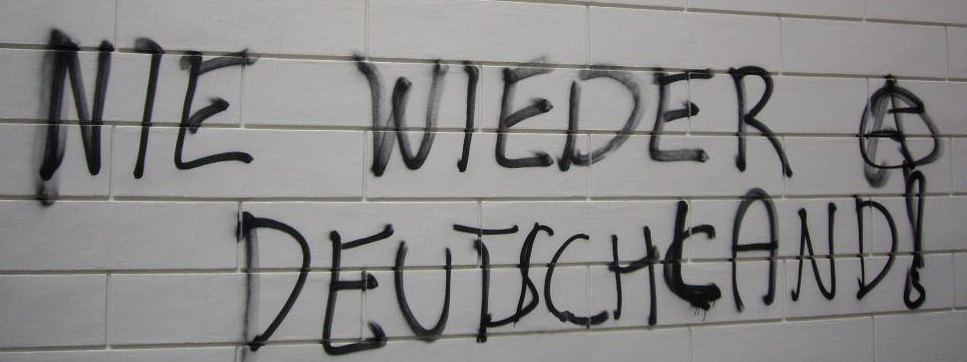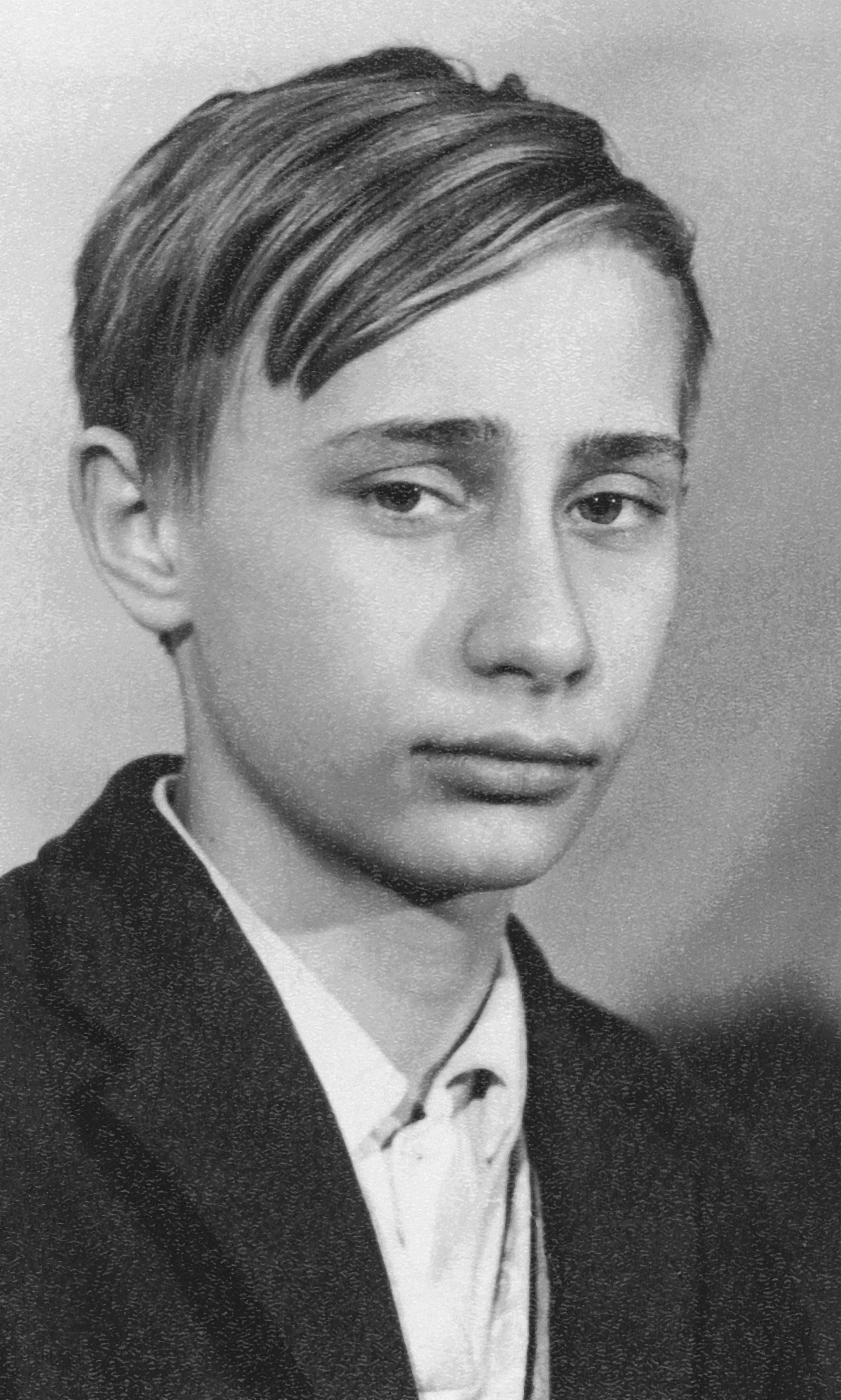|
Jürgen Elsässer
Jürgen Elsässer (born 20 January 1957) is a German journalist and political activist. Once active in left-wing circles, he later became a prominent figure in Germany's far-right scene. He is the founder of Compact, a magazine classified as extremist by the BfV in 2021 and banned by the BMI in 2024, though the ban was later overturned, with a final decision pending. Life Jürgen Elsässer was born in Pforzheim in 1957, the son of a watchmaker and a secretary. He described himself and his two sisters in their youth as typical admirers of left-wing values, influenced by the 1968 protest movement a few years earlier. His father, in contrast, was a conservative CDU voter. In order to secure a teaching position, Elsässer pledged support for the Liberal democratic basic order, a prerequisite for employment in the German public sector aimed at preventing political extremists from holding state-funded jobs. At the time, he was still active in communist organizations. He worked ... [...More Info...] [...Related Items...] OR: [Wikipedia] [Google] [Baidu] |
German Reunification
German reunification () was the process of re-establishing Germany as a single sovereign state, which began on 9 November 1989 and culminated on 3 October 1990 with the dissolution of the East Germany, German Democratic Republic and the integration of its re-established constituent federated states into the West Germany, Federal Republic of Germany to form Germany, present-day Germany. This date was chosen as the customary German Unity Day, and has thereafter been celebrated each year as a national day, national holiday. On the same date, East Berlin, East and West Berlin, West Berlin were also reunified into a single city, which eventually Decision on the Capital of Germany, became the capital of Germany. The East German government, controlled by the Socialist Unity Party of Germany (SED), started to falter on 2 May 1989, when the removal of Hungary's border fence with Austria opened a hole in the Iron Curtain. The border was still closely guarded, but the Pan-European Picn ... [...More Info...] [...Related Items...] OR: [Wikipedia] [Google] [Baidu] |
Jürgen Trittin
Jürgen Trittin (born 25 July 1954) is a German Green politician who served as Minister for the Environment, Nature Conservation and Nuclear Safety in the government of Chancellor Gerhard Schröder from 1998 to 2005. Early life and education Trittin was born in Bremen, as son of Helene and Klaus Trittin. He earned a university degree in social economy in Göttingen and worked as journalist. Political career Early beginnings Trittin's political career started in 1982 as Secretary of the Alternative-Greens-Initiative List (AGIL) Group in the Göttingen City Council (until 1984). From 1984 to 1985, he worked as press spokesman for the Green Party's group in the Lower Saxony State Assembly, which he joined in 1985 as member of the state parliament. Career in state politics, 1990–1998 From 1990 to 1994, Trittin was the Minister for Federal and European Affairs in a coalition government with the SPD, led by Minister-President of Lower Saxony Gerhard Schröder (SPD). In his c ... [...More Info...] [...Related Items...] OR: [Wikipedia] [Google] [Baidu] |
German People's Union
The German People's Union (, DVU, also ''Liste D'') was a far-right nationalist political party in Germany. It was founded by publisher Gerhard Frey as an informal association in 1971 and established as a party in 1987. In 2011, it merged with the National Democratic Party of Germany (NPD). The party never reached the five-percent minimum in federal elections that is generally necessary to enter the Bundestag. The DVU won seats in several state parliaments. The party, throughout its history, was financially completely dependent on Frey, something that caused it to be dubbed "Frey's Party". History The DVU was formed as an association, not a party, by Gerhard Frey and twelve others, former members of other right-wing organisations or conservative parties as well as from various groups in the Federation of Expellees. In the early years, before the organisation became a party in 1987, it was predominantly active in propagating revisionist views about the Holocaust and Germany ... [...More Info...] [...Related Items...] OR: [Wikipedia] [Google] [Baidu] |
Der Spiegel
(, , stylized in all caps) is a German weekly news magazine published in Hamburg. With a weekly circulation of about 724,000 copies in 2022, it is one of the largest such publications in Europe. It was founded in 1947 by John Seymour Chaloner, a British army officer, and Rudolf Augstein, a former ''Wehrmacht'' radio operator who was recognized in 2000 by the International Press Institute as one of the fifty World Press Freedom Heroes. is known in German-speaking countries mostly for its investigative journalism. It has played a key role in uncovering many political scandals such as the ''Spiegel'' affair in 1962 and the Flick affair in the 1980s. The news website by the same name was launched in 1994 under the name '' Spiegel Online'' with an independent editorial staff. Today, the content is created by a shared editorial team and the website uses the same media brand as the printed magazine. History The first edition of was published in Hanover on Saturday, 4 Januar ... [...More Info...] [...Related Items...] OR: [Wikipedia] [Google] [Baidu] |
Melanie Amann
Melanie Amann (born 1978) is a journalist and lawyer. She is deputy editor-in-chief of leading Germany weekly ''Der Spiegel''. Melanie Amann was born in Bonn and raised in Siegburg. She studied law at the University of Trier, Aix-Marseille III and at Humboldt University of Berlin. After graduating in law (Erstes juristisches Staatsexamen), Amann studied journalism at Deutsche Journalistenschule in Munich. She worked for '' Bonner General-Anzeiger'' and ''Süddeutsche Zeitung''. Amann wrote as editor for ''Financial Times Deutschland'' mainly about issues in the middle east. In 2006, she joined '' Frankfurter Allgemeinen Zeitung'' and wrote mainly on issues concerning employment law. In 2011, she received a Ph.D. in law from Ludwig-Maximilians-Universität München for a dissertation on the law of union elections. She joined ''Der Spiegel'' in 2013, covering center-right party CDU/CSU and the then-rising right-wing populist Alternative for Germany (AfD). In 2019, she became hea ... [...More Info...] [...Related Items...] OR: [Wikipedia] [Google] [Baidu] |
Konkret
has been the name of two German magazines. was originally the name of a magazine established by Klaus Rainer Röhl in 1957, that was an influential magazine on the German political left in the 1960s. The magazine was dissolved in 1973 as a consequence of Röhl's rejection of the leftist terrorism in Germany (in which his former wife Ulrike Meinhof took active part). Since 1974, Hermann L. Gremliza has published a monthly magazine with the same name, self-described as a "magazine for politics and culture". The current magazine is significantly less influential than the original magazine and part of the German left. It is described as leftist extremist by the Federal Office for Protection of the Constitution and also as Anti-German by the State Office for Protection of the Constitution in North Rhine-Westphalia. Klaus Rainer Röhl's ''konkret'' ''Studentenkurier'' In 1955, Klaus Rainer Röhl started the monthly '' Studentenkurier'' ("Student Messenger"), which was p ... [...More Info...] [...Related Items...] OR: [Wikipedia] [Google] [Baidu] |
Junge Welt
''Junge Welt'' (English: ''Young World'', stylized in its logo as ''junge Welt'') is a German daily newspaper, published in Berlin. The jW describes itself as a left-wing and Marxist newspaper. German authorities categorize it as a far-left medium hostile to the constitutional order. History and profile ''Junge Welt'' was first published on 12 February 1947 in the Soviet Sector of Berlin. The paper became the official newspaper of the Central Council ''(Zentralrat)'' of the Free German Youth (FDJ), the communist youth organisation, on 12 November 1947. With a daily circulation of 1.38 million, ''Junge Welt'' had the largest circulation of any daily newspaper in the German Democratic Republic, even higher than the official Socialist Unity Party organ ''Neues Deutschland''. The paper was published by Verlag Junge Welt GmbH during the East German era. The paper was allegedly sold for a symbolic price of 1 Mark to a West Berlin publishing house in 1991. It was relaunched in 1994, ... [...More Info...] [...Related Items...] OR: [Wikipedia] [Google] [Baidu] |
Anti-Germans (political Current)
"Anti-German" (; also Antideutsch(e) movement) is a collective term applied to a variety of theoretical and political tendencies within the left mainly in Germany and Austria. The anti-Germans form one of the main camps within the broader Antifa movement, alongside the anti-Zionist anti-imperialists, after the two currents split between the 1990s and the early 2000s as a result of their diverging views on Israel. The anti-Germans are a fringe movement within the German left: in 2006 ''Deutsche Welle'' estimated the number of anti-Germans to be between 500 and 3,000. The basic standpoint of the anti-Germans includes opposition to German nationalism, a critique of mainstream left anti-capitalist views, which are thought to be simplistic and structurally antisemitic, and a critique of antisemitism, which is considered to be deeply rooted in German cultural history. As a result of this analysis of antisemitism, support for Israel and opposition to anti-Zionism is a primary unifyi ... [...More Info...] [...Related Items...] OR: [Wikipedia] [Google] [Baidu] |
Querfront
''Querfront'' ( – ) is a German term originating from Weimar politics which refers to the cooperation between the far-right and far-left, or between nationalist and socialist ideologies, as well as the combination of their positions. It is primarily understood as a populist strategy to unite forces in an effort to gain power. The term was first and most prominently used in the Weimar Republic, where it referred to the cooperation between conservative revolutionaries and the far-left. The term sees adoption as a descriptor, or outright stated strategy, in modern-day Germany. Some have however criticized the modern usage as inaccurate from a historical perspective. History Some factions and members in the KPD and KAPD, who rejected the Treaty of Versailles, were ready to align themselves with dissident nationalist groups in the German army in order to garner more support. These members, primarily Heinrich Laufenberg and Fritz Wolffheim, were at the time described as " ... [...More Info...] [...Related Items...] OR: [Wikipedia] [Google] [Baidu] |
Angela Merkel
Angela Dorothea Merkel (; ; born 17 July 1954) is a German retired politician who served as Chancellor of Germany from 2005 to 2021. She is the only woman to have held the office. She was Leader of the Opposition from 2002 to 2005 and Leader of the Christian Democratic Union (CDU) from 2000 to 2018. Merkel was born in Hamburg in West Germany. Her family moved to East Germany when she was an infant. Merkel obtained a doctorate in quantum chemistry in 1986 and worked as a research scientist until 1989. She then entered politics in the wake of the Revolutions of 1989, briefly serving as deputy spokeswoman for the first democratically elected government of East Germany, led by Lothar de Maizière. Following German reunification in 1990, Merkel was elected to the Bundestag for the state of Mecklenburg-Vorpommern. As the protégée of Chancellor Helmut Kohl, Merkel was appointed as Minister for Women and Youth in 1991, later becoming Minister for the Environment, Nature Conserv ... [...More Info...] [...Related Items...] OR: [Wikipedia] [Google] [Baidu] |
Vladimir Putin
Vladimir Vladimirovich Putin (born 7 October 1952) is a Russian politician and former intelligence officer who has served as President of Russia since 2012, having previously served from 2000 to 2008. Putin also served as Prime Minister of Russia from 1999 to 2000 and again from 2008 to 2012. He is the longest-serving Russian president since the independence of Russia from the Soviet Union. Putin worked as a KGB foreign intelligence officer for 16 years, rising to the rank of Lieutenant colonel (Eastern Europe), lieutenant colonel. He resigned in 1991 to begin a political career in Saint Petersburg. In 1996, he moved to Moscow to join the administration of President Boris Yeltsin. He briefly served as the director of the Federal Security Service (FSB) and then as Secretary of the Security Council of Russia, secretary of the Security Council of Russia before Putin's rise to power, being appointed prime minister in August 1999. Following Yeltsin's resignation, Putin became Actin ... [...More Info...] [...Related Items...] OR: [Wikipedia] [Google] [Baidu] |


